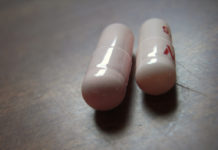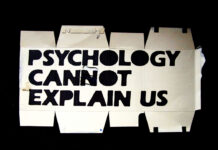The Monster in Our House: What Psychiatric Medication Did to My Father
When we eliminated his last psychotropic prescription, it was as if my father came back from the dead. All of the monster-like qualities that we thought were severe symptoms of his dementia have practically disappeared. We’ve found ourselves questioning whether he has dementia at all.
Lasting Damage from Prescribed Drugs
There is a large-scale failure to appreciate the risks involved in taking drugs that alter brain function on a long-term basis. The fact that it has taken single-minded and dedicated campaigners, many of them users of the drugs concerned, to bring these effects to the attention of the scientific and professional community is shameful.
Benzo Withdrawal: Why Don’t Doctors Know?
Many have asked: “Why doesn’t my doctor/provider know what is happening to me?” Benzodiazepine tolerance and withdrawal are not new. So, why isn’t it simple to diagnose and treat? As both a health care provider and a withdrawal sufferer, I’d like to offer an inside and outside perspective on this question.
New Data on the Adverse Effects of Meditation and Mindfulness
Study reports on the less-examined findings of difficult and painful meditation-related experiences.
New Study Casts Doubt on Efficacy of Ketamine for Depression
A new study, published this month in the Journal of Affective Disorders, investigated the effectiveness of weekly intravenous ketamine injections as a treatment for...
Researchers Test Harms and Benefits of Long Term Antipsychotic Use
Researchers from the City College of New York and Columbia University published a study this month testing the hypothesis that people diagnosed with schizophrenia treated long-term with antipsychotic drugs have worse outcomes than patients with no exposure to these drugs. They concluded that there is not a sufficient evidence base for the standard practice of long-term use of antipsychotic medications.
In Memory of Julie Greene
With deep regret, Mad in America announces another loss in our contributor community. Julie C. Greene, writer and antipsychiatry advocate, lost her battle with kidney disease on November 29 at her home in Beaver Falls, Pennsylvania. Julie had been an MIA blogger since 2014, including several pieces on the dangers of lithium.
Makers of Risperdal Sued for Breast Development in Boys
Thousands of boys and young men are lined up in courthouses around the country to sue J&J for gynecomastia caused by taking Risperdal as young children. The condition is irreversible except by surgical removal. Collectively, they have become known as the Risperdal Boys.
Everything Matters: a Memoir From Before, During and After Psychiatric Drugs
Psych meds can not only put weight on regardless of how you otherwise care for yourself, they also tend to make people feel gravely lethargic and vaguely sick all the time. I could not exercise as I had before. Could not. It doesn't matter how much mental health professionals try to tell us that if we just exercised we'd be okay in the face of neurotoxic drugs that cause weight gain, because the fact is the drugs impede that capacity. This is not widely appreciated or understood and people on psych meds are again traumatized and made to feel guilty for something that is truly outside of their control as long as they are taking these medications.
What Should We Really Call Psychiatric Drugs?
There is no rational way to argue against putting psychiatric chemicals into the category of neurotoxins. All psychiatric substances alter “the structure or functions of the nervous system,” disrupt “the normal function of nerve cells” and act “specifically on nervous tissue.” It is time to clean up the misleading mess of words in psychiatry.
Antidepressants Increase Risk of Death, Study Finds
Antidepressants are commonly considered safe and effective treatments. However, research has questioned their efficacy, and now, their safety.
Two Years Tapering an Antidepressant – A Life-Changing Experience That I Didn’t Want
My heart goes out to anyone experiencing withdrawal, but especially those who are so ill they can’t work and are struggling to navigate a heartless and cynical ‘benefits’ system. Their only crime is to have experienced difficulty from a prescribed treatment, yet they are treated as medical pariahs.
Update on Marci Webber: Will the Nightmare Ever End?
According to the law, when an NGRI patient is no longer mentally ill and dangerous, they are supposed to be released. Marci petitioned for discharge and has a hearing scheduled for May 7-9, 2019. It is critical that we convince the judge that Marci should be discharged. She is finding it increasingly difficult to tolerate life under the present circumstances.
The FDA Is Hiding Reports Linking Psych Drugs to Homicides
In my wildest dreams, I could never have imagined being drawn into a story of intrigue involving my own government’s efforts to hide, from the public, reports of psychiatric drugs associated with cases of murder, including homicides committed by youth on the drugs. But that is precisely the intrigue I now find myself enmeshed in.
The Good, the Bad, and the Ugly: An Infographic on Bipolar Drugs
Bipolar drug therapy is a balancing act of benefits vs. harms. Odds of attributable benefit cluster in a 15-25% band, so 75%-85% don’t see substantial benefit. Stated differently, if five people take a bipolar drug, only one is likely to see substantial improvement due to it, but all five will have side effects.
Long-term Usage of ADHD Drugs Linked to Growth Suppression
Findings suggest that treatment not only fails to reduce the severity of “ADHD” symptoms in adulthood but is associated with decreased height.
An Alternative Perspective on Psychotherapy: It is Not a ‘Cure’
Kev Harding argues against conceptualizations of therapy as a ‘cure’ to an ‘illness’ and instead offers alternative approaches.
Mental Health Services Turned My Daughter’s Crisis into a Way of Life
My world turned upside down when my daughter nearly died from a serious suicide attempt. After several years as her caretaker I began to wonder: What can we do to change the way our mental health services are organized so they won't turn a crisis into a way of life for already distressed and vulnerable people?
Violence Caused by Antidepressants: An Update after Munich
The media is now reporting details about the 18-year-old who shot and killed nine and wounded many others before killing himself on July 22 in Munich. My clinical and forensic experience leads to a distinction among people who murder under the influence of psychiatric drugs. Those who kill only one or two people, or close family members, often have little or no history of mental disturbance and violent tendencies. The drug itself seems like the sole cause of the violent outburst. On the other hand, most of those who commit mass violence while taking psychiatric drugs often have a long history of mental disturbance and sometimes violence. For these people, the mental health system seems to have provoked increasing violence without recognizing the danger.
Researchers Warn of “Brain Atrophy” in Children Prescribed Antipsychotics
Researchers discuss the evidence that antipsychotic medications may cause brain atrophy in children, whose brains are still developing.
Timberrr! Psychiatry’s Evidence Base For Antipsychotics Comes Crashing to the Ground
When I wrote Anatomy of an Epidemic, one of my foremost hopes was that it would prompt mainstream researchers to revisit the scientific literature. Was there evidence that any class of psychiatric medications—antipsychotics, antidepressants, stimulants, benzodiazepines, and so forth—provided a long-term benefit? Now epidemiologists at Columbia University and City College of New York have reported that they have done such an investigation about antipsychotics, and their bottom-line finding can be summed up in this way: Psychiatry’s “evidence base” for long-term use of these drugs does not exist.
Part II: Michelle Starts Prozac and Sees the Devil
By 2011, anyone who read the scientific literature would have known that children cannot tolerate SSRIs and should not be given them. Neither Conrad nor Michelle seemed to have been warned about the common adverse effects (such as nightmares and compulsive suicidality) of the SSRI antidepressants they were on.
How Academic Psychiatry Minimized SSRI Withdrawal
If academic psychiatry is evidence-based, why did it take two decades to recognize SSRI withdrawal as widespread and chronic among patients?
Scientists Clarify Risks of Augmenting with Antipsychotic Medications for Depression
The researchers found that while antipsychotic drugs may be slightly more effective than alternative antidepressants, they come with a much higher side effect burden.
See No Evil, Hear No Evil
When you take a woman who has been eating processed food, taking The Pill, antibiotics, and maybe even a PPI, exposed to xenoestrogens, endocrine disruptors, and friendly-bacteria-slaughtering pesticides and you grow a baby in that womb, there is a good chance you have created a time-bomb. Throw in 70 doses of 16 neurotoxic and immunosuppressive vaccines by age 18, some formula, and genetically modified and processed baby food, 4 years of plastic diapers, and Johnson’s 1,4-dioxane babywash and… Houston, we have a problem.





























